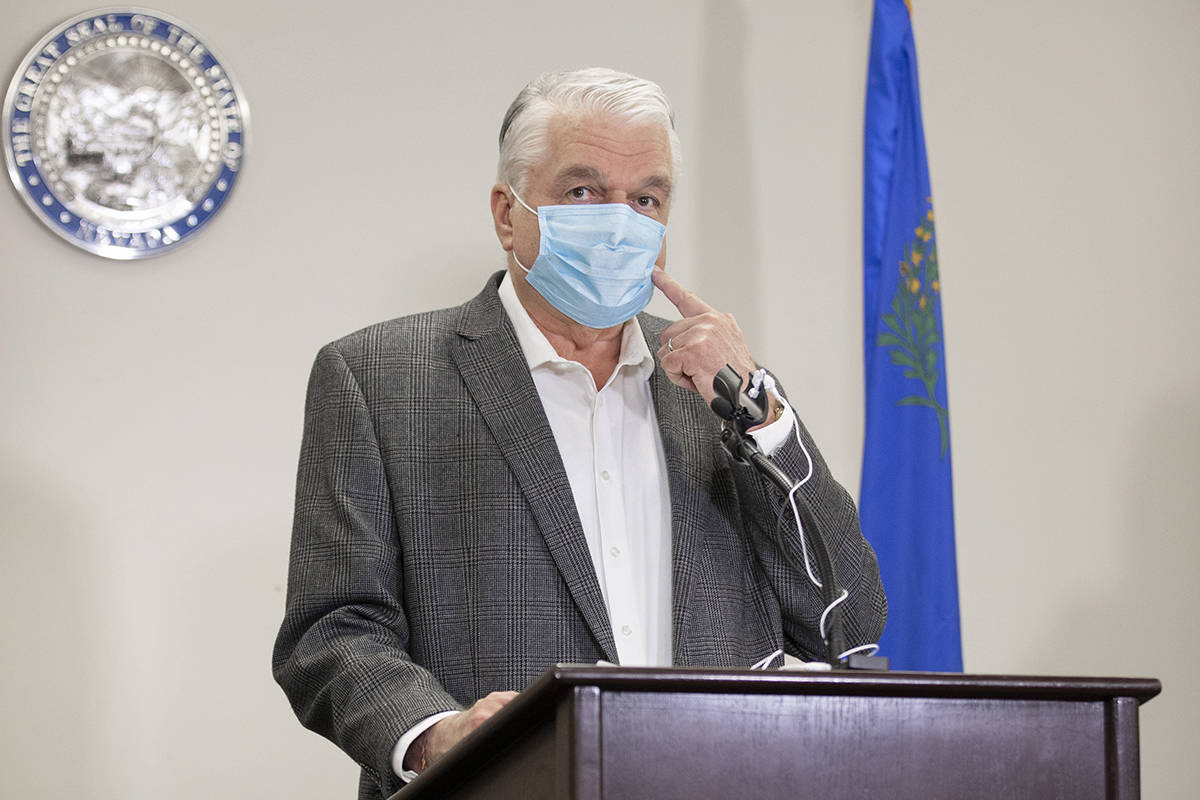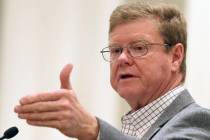State agencies told to cut budgets for next 2 years by 12%
CARSON CITY — State agencies are being asked to prepare for more steep cuts for the coming years as the economic distress caused by the COVID-19 pandemic continues to put a crunch on Nevada’s budget, according to a memo sent by Gov. Steve Sisolak’s office.
In a memo emailed to state agencies late Tuesday afternoon, Governor’s Finance Office Director Susan Brown told department heads to prepare budget cuts of 12 percent for fiscal years 2022 and 2023.
“It is necessary to prepare for future declines in General Fund revenues for the 2021-2023 biennium,” Brown wrote. Fiscal year 2022 begins on July 1, 2021.
In a statement, Sisolak said that Nevada, like states across the country, “faces historic shortfalls as a result of COVID-19, and we must work together to responsibly prepare for the next biennium under the upcoming projections.”
“Like Nevada families, the State must budget with what we have in front of us in our current situation as we continue to monitor projections and updates,” Sisolak said.
State agencies had to submit their proposed budgets for the two-year period by Sept. 1. The proposed cuts must be submitted to the finance office by Nov. 20.
Sen. Ben Kieckhefer, R-Reno, said that the request “is a reflection of our budgetary reality and the timing of our budget process.”
“This is the correct step for the Governor’s Finance Office and governor’s office at this point based on what I think we can reasonably expect for the next biennium,” Kieckhefer said.
The request to slash the state agencies’ future budgets comes after Nevada lawmakers cut more than $500 million from the current fiscal year’s budget during a special legislative session this summer to offset the projected revenue losses suffered because of the COVID-19 pandemic’s impact on the state’s biggest economic drivers of gaming and tourism.
Those cuts hit individual programs and one-time appropriations hardest, especially in health care and education, where key programs like the Read-by-3 initiative were gutted. But the state’s main K-12 budget, called the Distributive Schools Account, which funds school districts, remained untouched after those cuts.
With the future cuts, Kieckhefer said, they don’t have the one-time appropriations to cut to make up the difference in revenue projections.
Kieckhefer, who serves on the Senate Finance Committee and on the Interim Finance Committee, said that the budgets submitted by the agencies in September were $800 million higher than the budget approved by the Legislature in 2019 for the current fiscal period, and about $1.3 billion higher than the current budget after it was amended during the special session in July.
“Preparing scenarios to pare back some of that spending is an important step right now,” Kieckhefer said.
The state’s Economic Forum will meet in early December, when a clearer picture of Nevada’s fiscal future will be laid out.
Contact Capital Bureau Chief Colton Lochhead at clochhead@reviewjournal.com. Follow @ColtonLochhead on Twitter.











































